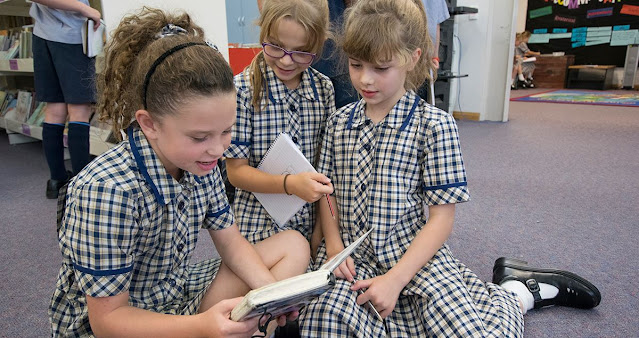The Power of Writing Conversations In The Classroom.
In that moment I felt completely blank and couldn't conjure up a single thing to write about. I was trying to will my brain into action. Writer’s block had descended upon me like a damp, foggy mist. It was rare for this to happen to me, but suddenly I found myself having to deal with it. I had so wanted to sit among these enthused young learners and write for those initial minutes of their independent writing.
A small boy stood beside me at this critical moment and said, 'I’m going to write about the first time I went fishing which was on Saturday with my Dad'
'Oh thank you.' I said with a huge sigh of relief.
The bemused child looked at me, somewhat unsure of what he had actaully done.
'You just gave me a wonderful idea for my writing this morning. Like you, I’m going to write about the very first time I went fishing. Maybe we can share our stories at the end of this writing session?'
'Okay,' he said and wandered away to begin his writing piece.
Our exchange was as simple as that, but suddenly I was visited by such powerful visual images of that first fishing adventure with my uncle John at Blackburn Lake when I was aged eight and the associated thrill of catching three Redfin (a member of the Perch family of fish).
A flood of memories washed over me and I was back there again reliving that exact moment from my childhood. I traveled back through time and the memories came rushing back, strong and clear.
It is always interesting to ponder the clarity of memory surrounding those 'firsts' in each of our lives. They resonate strongly.
That short conversation with a fellow writer underscored the critical nature of talking to fellow writers. - The free exchange of ideas. A fellow writer’s words had sparked an idea for my writing at a time when I was so desperately seeking a flicker of inspiration. That critical exchange of words pointed me towards my writing direction.
I frequently tell this story to the young writers I meet to illustrate the importance of engaging in regular conversation about writing intentions and actions.
Sometimes the simplest exchange is enough to ignite a writing spark. As teachers of writing we must ensure that talk is a central component of our workshop structure. Conversation is the oxygen writing needs to thrive. Ideas float on a sea of talk. As educators we must assign significance to talk as a conduit between writers.








Comments
Post a Comment